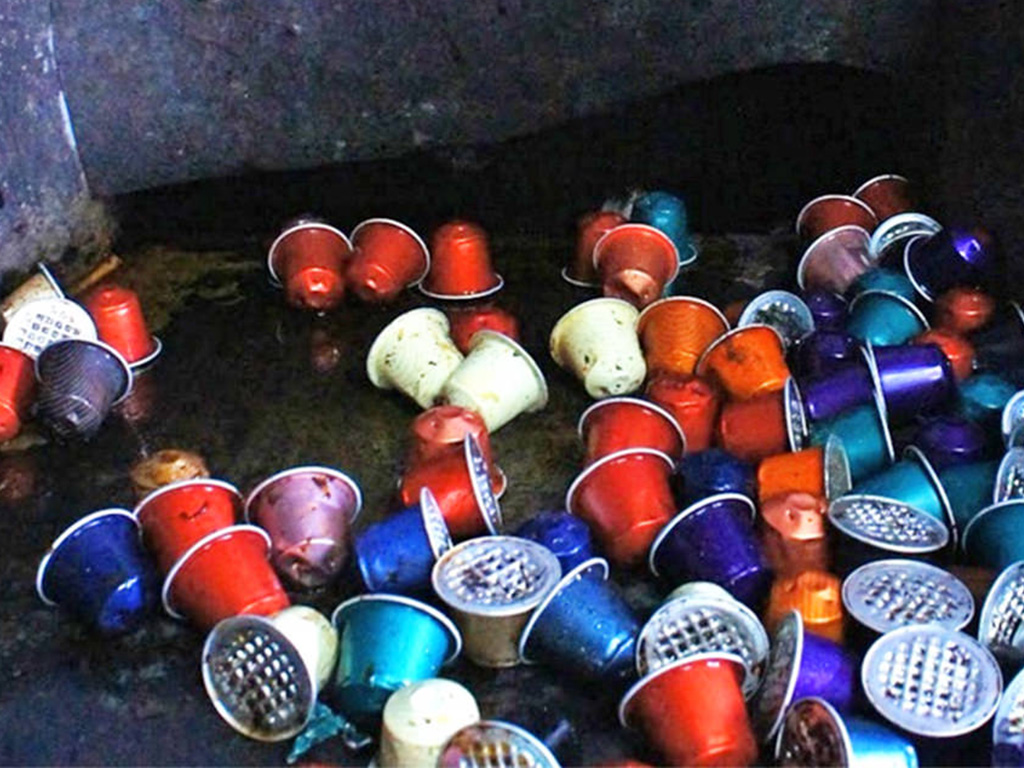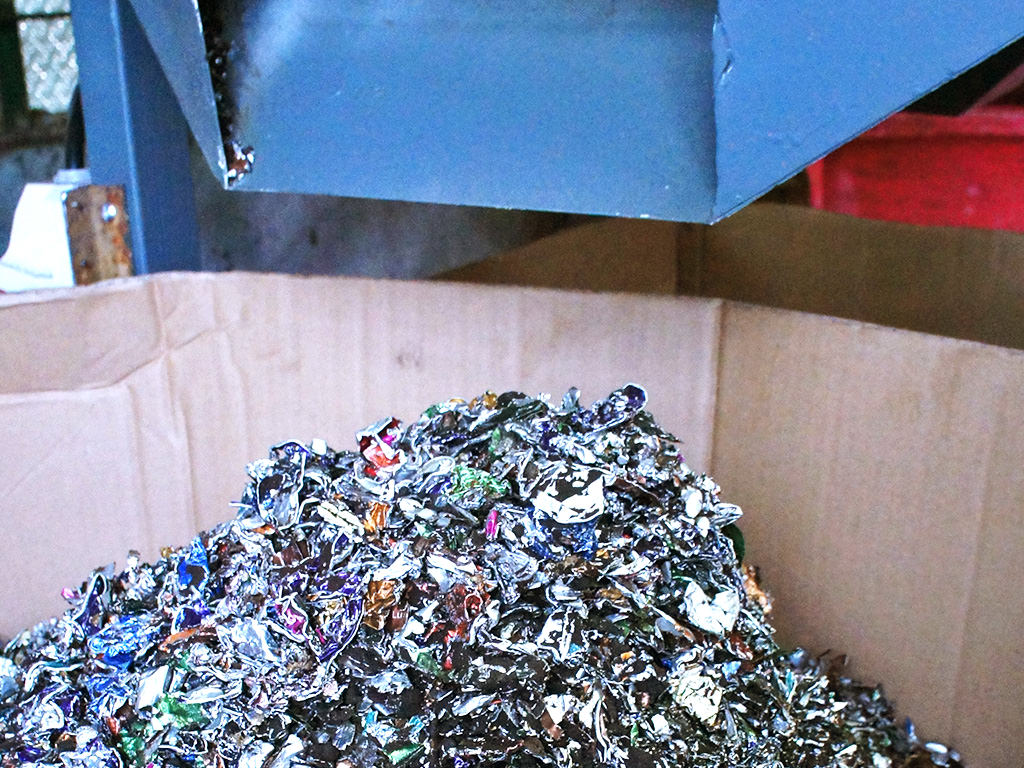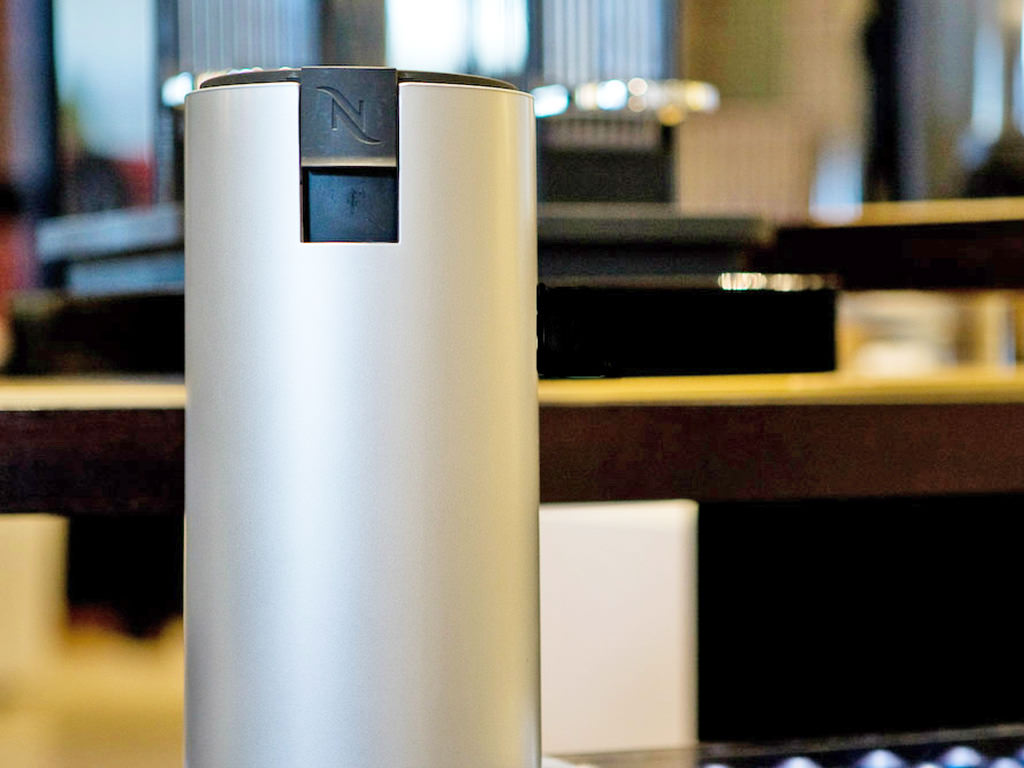5 Mins Read
As passionate (though definitely imperfect) eco-warriors, us Green Queen gals know a thing or two about greener lifestyle habits and have researched our fair share of topics and we thought we had the whole coffee thing sussed out. As far as we were concerned, the name of the game was to save on packaging and energy: buy in bulk for home usage (preferably whole, fair trade beans from somewhere geographically close), avoid store-bought coffee cups (bring your own mug when frequenting coffee shops), use a French press or a moka pot instead of an energy-guzzling old-fashioned coffee machine that sits on your kitchen counter all day gathering dust while keeping your average-tasting coffee warm. And those disposable capsule coffee dispensing machine that have become all the rage? A total eco no-no. Or so we thought…
It came as a huge surprise to learn that we were sorely mistaken in our understanding of what constitutes a sustainably-sourced, ethical cup of coffee but when we’re wrong, we’re wrong. Turns out Nespresso, the Swiss company that made the disposable coffee capsule and accompanying machine (or portioned coffee as they refer to it) a global trend, is more than a little serious about all matters of sustainability.

There are two key concepts to keep in mind here. Firstly, Nespresso is a company that realized a while back that if they wanted to stay relevant in the era of conscious millennial consumers, they needed to alter their brand DNA and make sustainability the ultimate priority. Secondly, most of us are completely misinformed about what’s important when it comes to the environmental life cycle of a cup of coffee.
Let’s start with the latter. When you go to your neighborhood Starbucks and you bring your own cup, you may be missing the (eco) point. The packaging of the coffee (mug, plastic cup, recycled paper cup…), and the way the coffee is made (what type of machine) makes up a very small part of coffee’s environmental cost. Though food for thought: capsule coffee machines are more efficient than they may at first appear: in that they don’t waste any water or any coffee, since it’s all pre-portioned. But the fact remains that the lion’s share of the cost of coffee is the actual coffee growing and the transportation of the coffee across the world.

The coffee industry is ripe with issues from rampant unethical labor practices to regular pest infestations, not to mention politically unstable geographies and a wide range of variable quality. For a company like Nespresso to commit to selecting only the top 1-2% of the world’s coffee beans AND for them to be sustainably and ethically grown is a Herculean sourcing effort. It is extremely difficult to guarantee quality and quantity levels when you need consistency across the board.
Nespresso’s AAA Sustainable Quality Program campaign, which was launched in 2003 in partnership with the Rainforest Alliance, illustrates the brand’s commitment to coffee sourcing sustainability with a focus on transparency and accountability thanks to very public goals. In 2016, they have redoubled their efforts and promises with the global Positive Cup campaign, which they have set aside CHF 500 million to achieve by 2020. Here’s what Nespresso hopes to achieve globally:
- source 100% of their permanent Grand Cru range through their AAA Sustainable Quality™Program (today they are at 80%)
- get 100% of Nespresso virgin capsules to produced according to the Aluminium Stewardship Initiative Standard (ensure sustainable and responsible aluminium management)
- ensure that global capacity for capsule and coffee grounds recycling is at 100%
- reduce the company’s carbon footprint to zero

The cynical amongst us may scoff at the above goals. Full disclosure: Nespresso is wholly owned by Nestle. But the fact remains that these are not easy goals. They are incredibly ambitious for so many reasons.
As explained above, getting all your beans from ethical, eco-friendly growers may not be possible in the present-day. There simply aren’t enough such coffee farmers in existence. And that’s before you bring in quality, a factor Nespresso takes very seriously. Sourcing the entirety of their beans from quality, fairly-paid growers puts the burden squarely on Nespresso itself to invest in family coffee farms, their land, their livelihoods and their continued agricultural education.
Committing to using nothing but recycled aluminium is also difficult. For information: if you are wondering why Nespresso chooses to use aluminium pods, it’s because aluminium is one of the few materials on earth that can be recycled ad infinitum. Still the global recycled aluminium markets are immature at best, and it will take time to guarantee supply.

Making sure that the capsules and the coffee grounds get recycled (instead of dumped into a landfill) comes at a considerable cost to the company, particularly in cities like Hong Kong where recycling facilities are scarce and consumer recycling behavior is hardly exemplary. In Nespresso’s native Switzerland, they have basically already achieved the 100% recycling goal thanks to the country’s attitude to recycling. In some countries, there are no recycling partners to work with at all, making their commitment that much harder to achieve. Nespresso works hard to find the easiest way to encourage recycling. They pick up used capsules from home and office consumers. They work with a recycling plant to separate the aluminium and the coffee grounds. The same recycler then ensures the aluminium gets recycled. In Hong Kong, where home composting is non-existent, they have allied themselves with the Hong Kong Organic Waste Recycling Centre (HKOWRC), the city’s only organic waste recycling centre, where the used coffee grounds gets converted into natural compost used for growing organic vegetables and fruits.
Again, you can shrug this off as nothing but lip-service CSR. But Nespresso allocates a great deal of time, money and human resources towards these goals. And that’s not everything. But for these two eco-warriors, it’s something.
Find out more about Nespresso Hong Kong’s Positive Cup Campaign, their sustainability efforts and how you can get involved here.
Editor’s Note: This article was not paid for nor sponsored by Nespresso. It is a result of Green Queen’s in-depth research into the coffee industry in general and Nespresso’s efforts in particular.
Image Credits: all photos courtesy of Nespresso.





